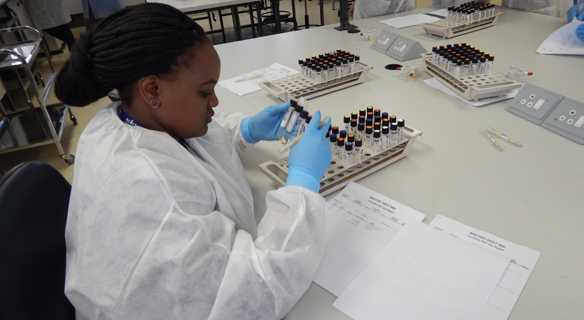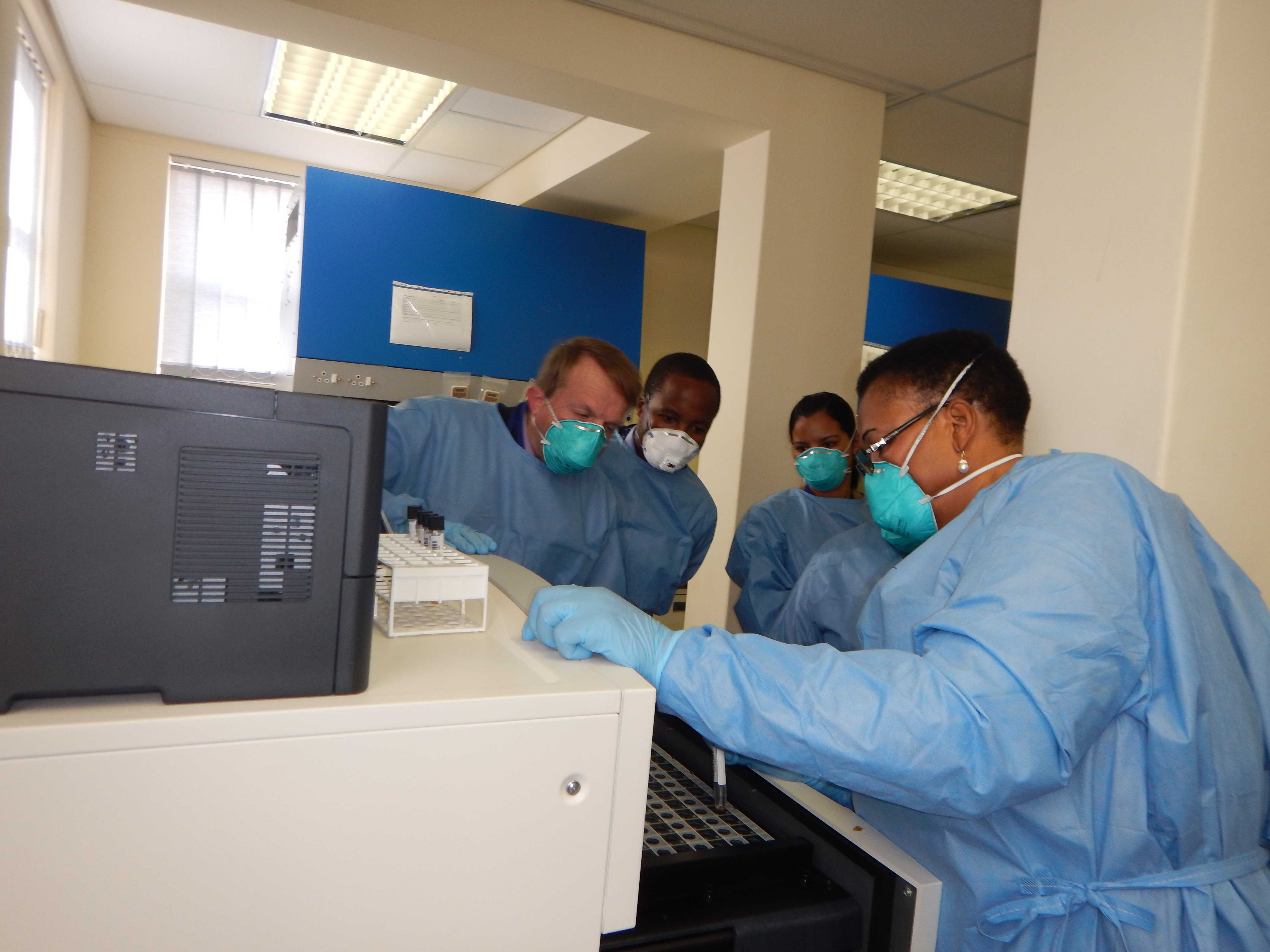Confronting an Overlooked Challenge to Help Fight Disease in Africa

More than a decade ago, the U.S. Government launched the President’s Emergency Plan for AIDS Relief (PEPFAR) to help bring lifesaving treatment to as many people as possible in sub-Saharan Africa – the epicenter of the world’s AIDS crisis. But as treatment efforts expanded, it became increasingly clear that weak laboratory systems were undermining efforts to effectively fight the disease across the continent.
When PEPFAR began in 2003, the network of labs across Africa was fragile and fragmented. There was no standard method for transporting blood or other specimens to labs, few people were hired to transport the samples in the first place, and when the specimens finally arrived at the lab many were not equipped to do the necessary testing – and even those that could took a very long time to get a result back to the patient.
To overcome this major health challenge, in 2007 the U.S. Centers for Disease Control (CDC), PEPFAR, and Becton Dickinson (BD) joined forces with Ministries of Health in four African countries. The results of this innovative partnership, known as Labs for Life,will be released this week for the first time in Washington, DC. Details of the partnership, including country-specific case studies, are featured in this month’s Journal of Infectious Diseases.
Although often overlooked, strong laboratories are at the core of any country’s ability to prevent, identify, and respond to HIV, TB, and other diseases. They’re also critical to protecting the world’s health and security. From identifying and monitoring the growing threat of TB drug resistance to enabling fast and accurate HIV diagnoses, labs are essential to help control today’s epidemics and identify tomorrow’s health threats.

Investing in Labs to Invest in Life
The partnership focused on Kenya, Mozambique, Ethiopia, and Uganda – countries with some of the highest rates of HIV and TB in the world. Long recognizing the need to invest in laboratory expertise worldwide, CDC came together with PEPFAR and BD to strengthen these countries’ labs and provide essential training to create a stronger healthcare workforce.
In Kenya, this meant training nearly 100 healthcare workers to safely draw blood in order to avoid the accidental spread of disease. In Ethiopia, the partnership worked with the national postal service to cut down on the amount of time it took to deliver accurate lab results, dramatically speeding up diagnosis and treatment for those in need.
In Uganda, we helped improve the ability of local health workers to detect drug-resistant TB much earlier, resulting in ten times more patients being referred for treatment than before. And in Mozambique, a quality assurance program implemented by the partnership has significantly increased the accuracy of lab testing.
These efforts are translating into lives saved. Based on the strong results of the first five years, the partnership was expanded to Asia, specifically India.
Public-Private Partnerships — a Powerful Tool to Achieve Greater Impact
Labs for Life is a good example of the positive impact governments and private companies can have when they collaborate – each brings unique strengths to the table that makes it possible to achieve more together than any partner could do alone. BD dedicated 75 staff members from its global workforce – including logistics coordinators, medical technicians, and microbiologists – to personally mentor lab personnel in each of the partner countries. PEPFAR provided funding for the partnership and helped manage the distribution of essential lab supplies. And CDC, building on its lab-strengthening work in more than 60 countries around the world, provided lab-specific expertise, such as training and technical support in identifying and preventing disease and in monitoring patients, and training healthcare workers. Finally, Health Ministries in the four African countries were key to getting the partnership up and running, and now are helping to ensure its initial success translates into healthcare stability over the long term.
When done well, public-private partnerships not only provide creative solutions to urgent problems, they also can provide benefits beyond their immediate purpose. For example, while Labs for Life is focused on HIV and TB, the quality labs it is establishing will help countries respond rapidly to a range of health threats – whether it’s Zika, Ebola, or another disease that has yet to emerge.
Labs for Life: Success Stories
From 2007-2012 CDC, PEPFAR and BD Helped Transform Healthcare in Four African Countries
KENYA

In Kenya, our partnership working with frontline healthcare workers to strengthen labs is saving lives.
MOZAMBIQUE

In Mozambique, with the leadership of ministry of health officials, Labs for Life makes a lasting impact.
ETHIOPIA

In Ethiopia, CDC, PEPFAR and BD are helping to deliver change one package at a time.
UGANDA

In Uganda, Labs for Life implements widespread training that dramatically reduces wait times for diagnoses of some of the world’s deadliest diseases.
Labs for Life Infographic:

Get email updates
To receive email updates about this page, enter your email address:
Contact Us:
- Centers for Disease Control and Prevention
1600 Clifton Rd
Atlanta, GA 30333 - 800-CDC-INFO
(800-232-4636)
TTY: (888) 232-6348
24 Hours/Every Day - Contact CDC-INFO
 ShareCompartir
ShareCompartir


